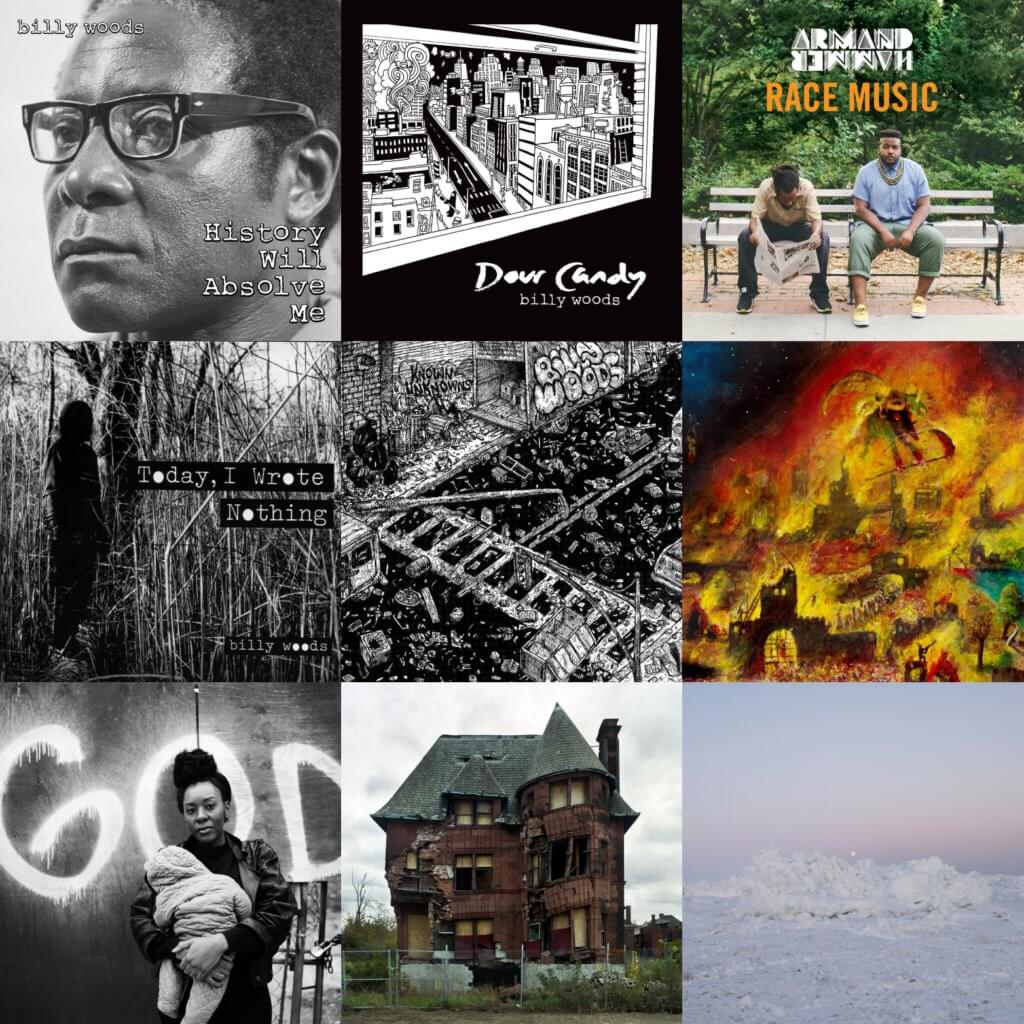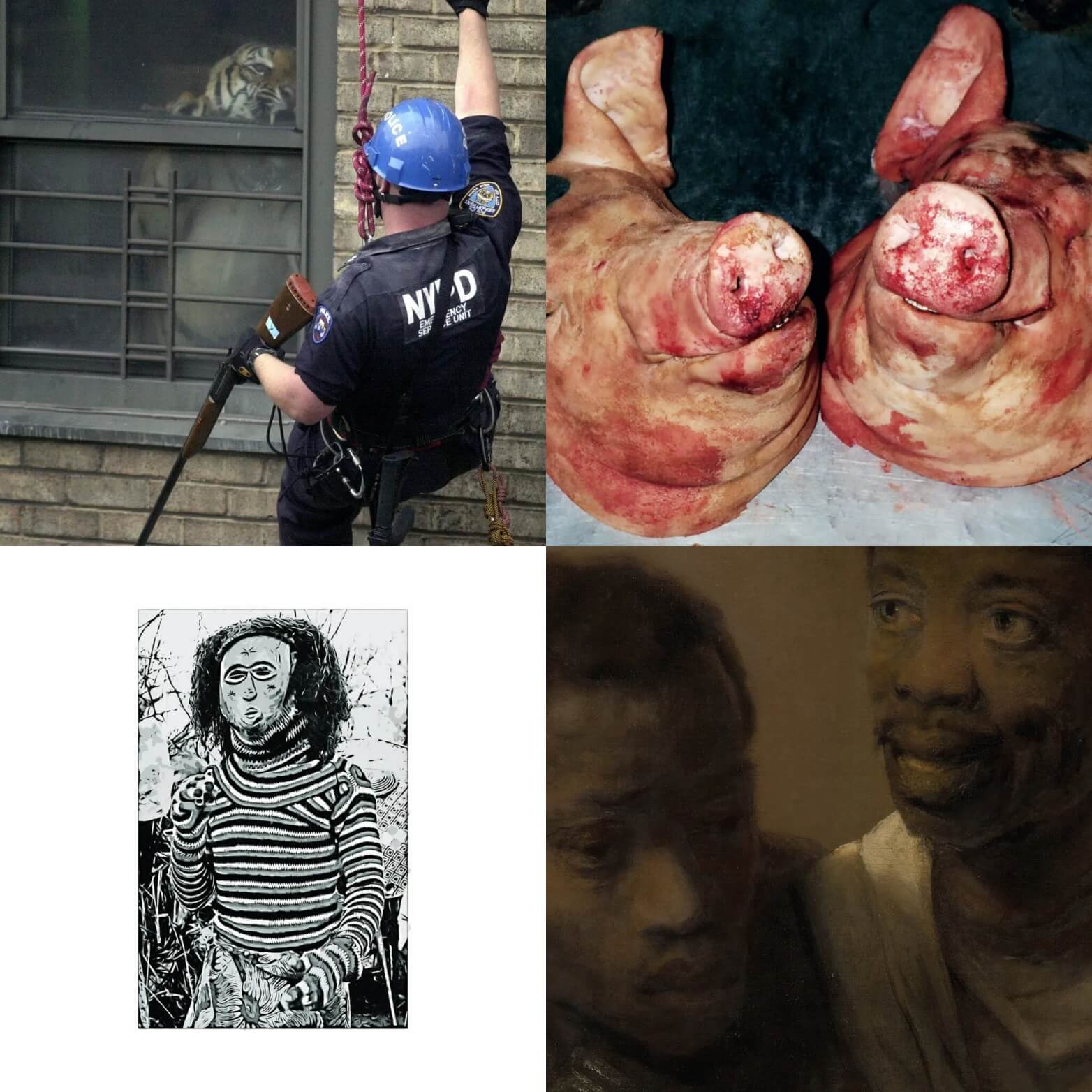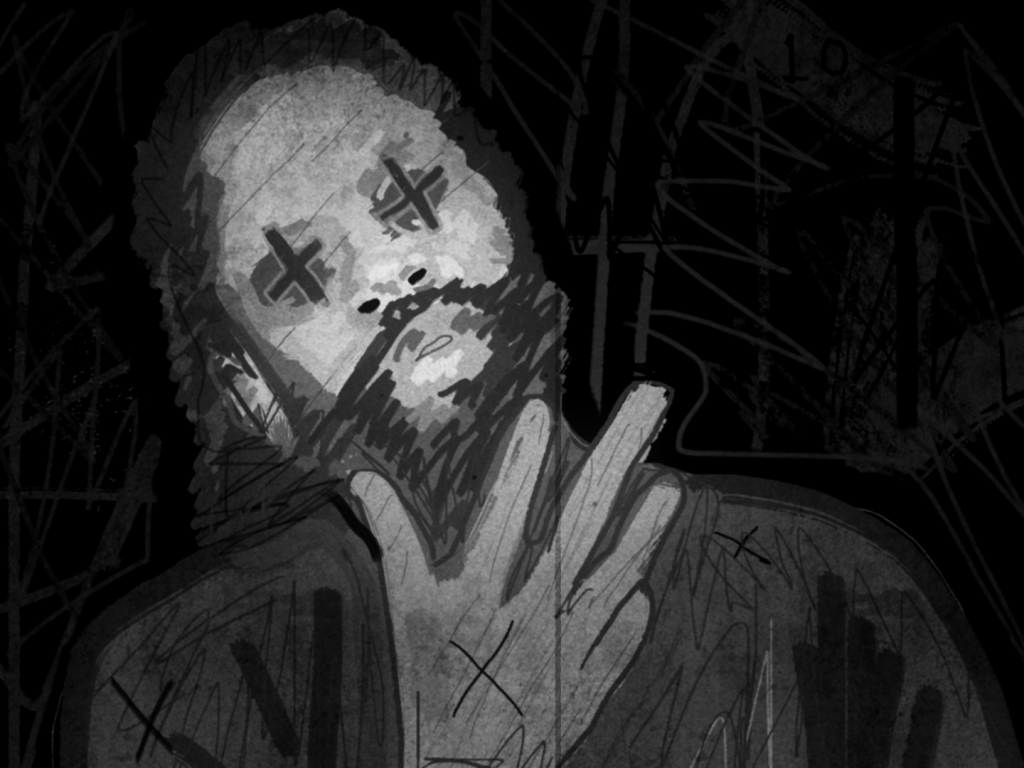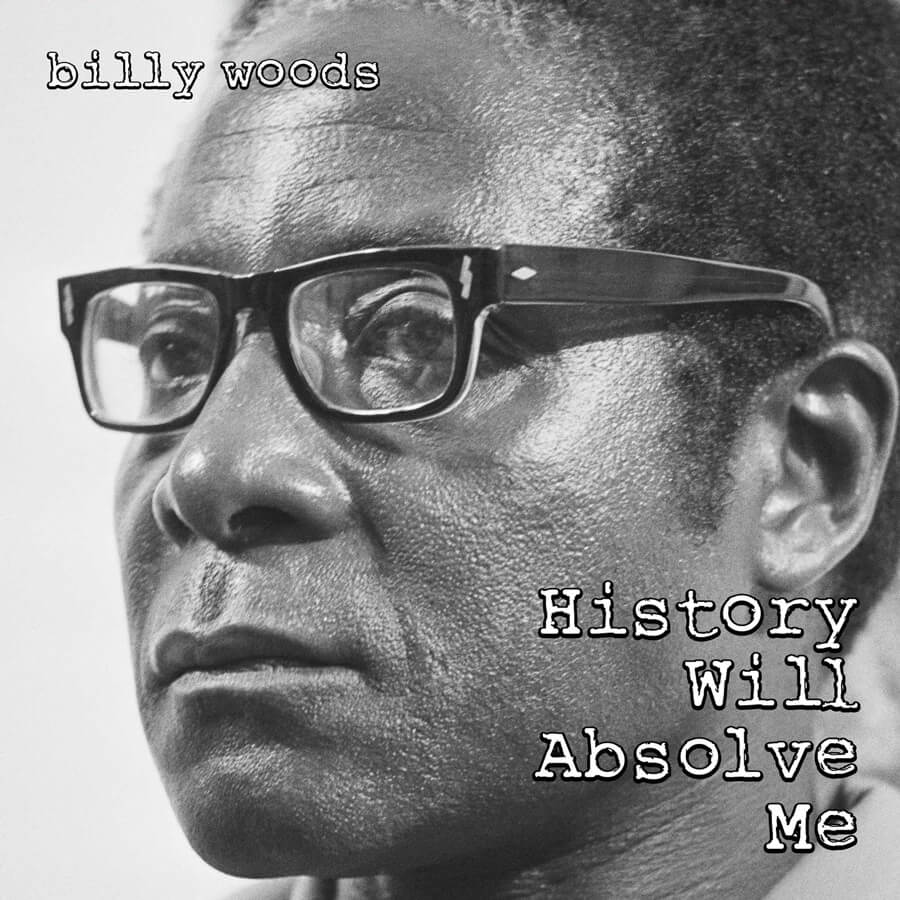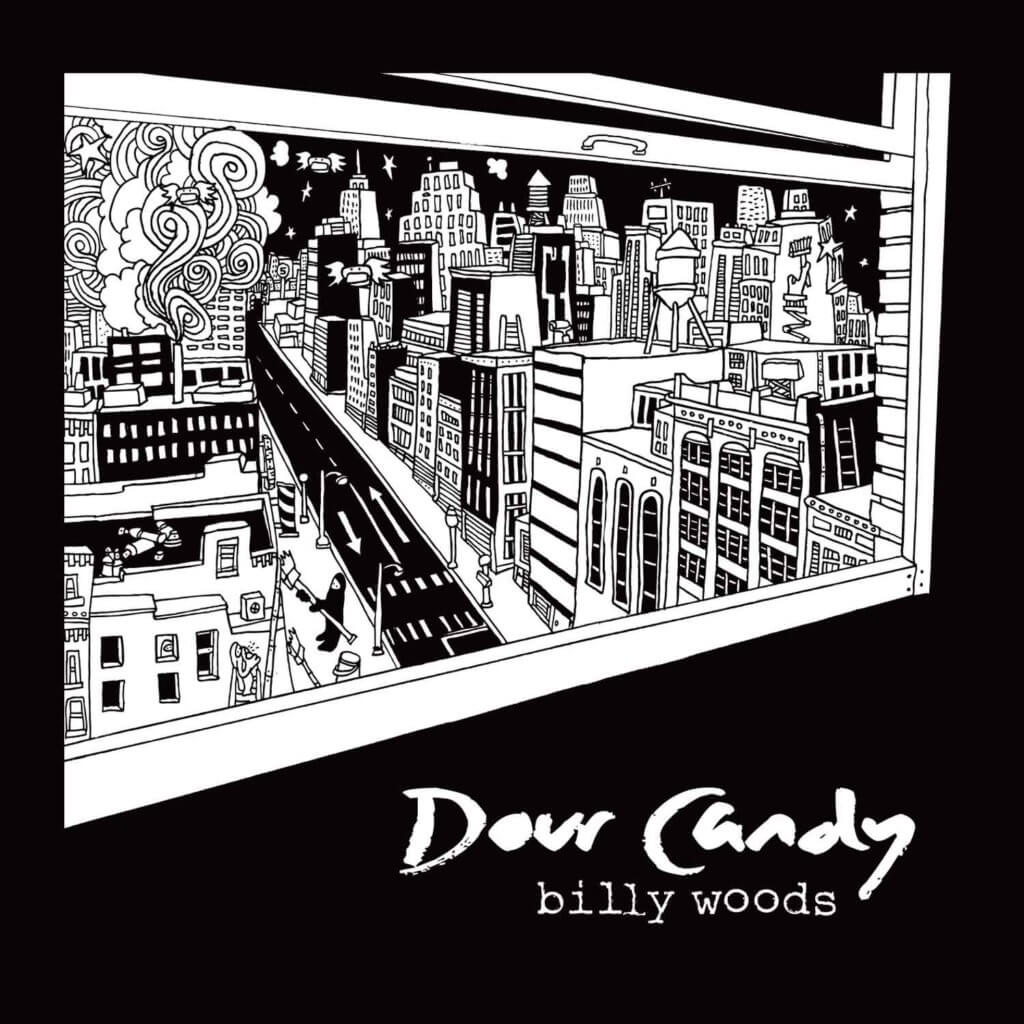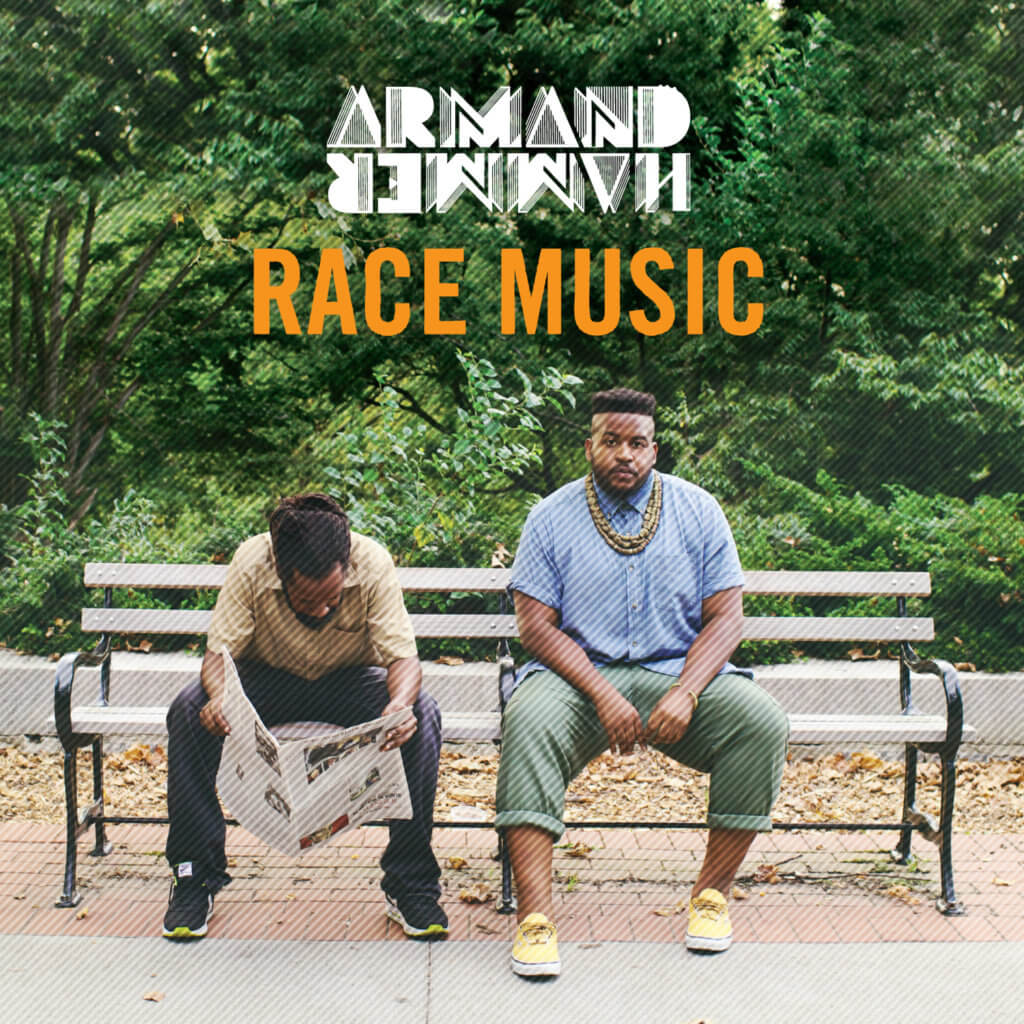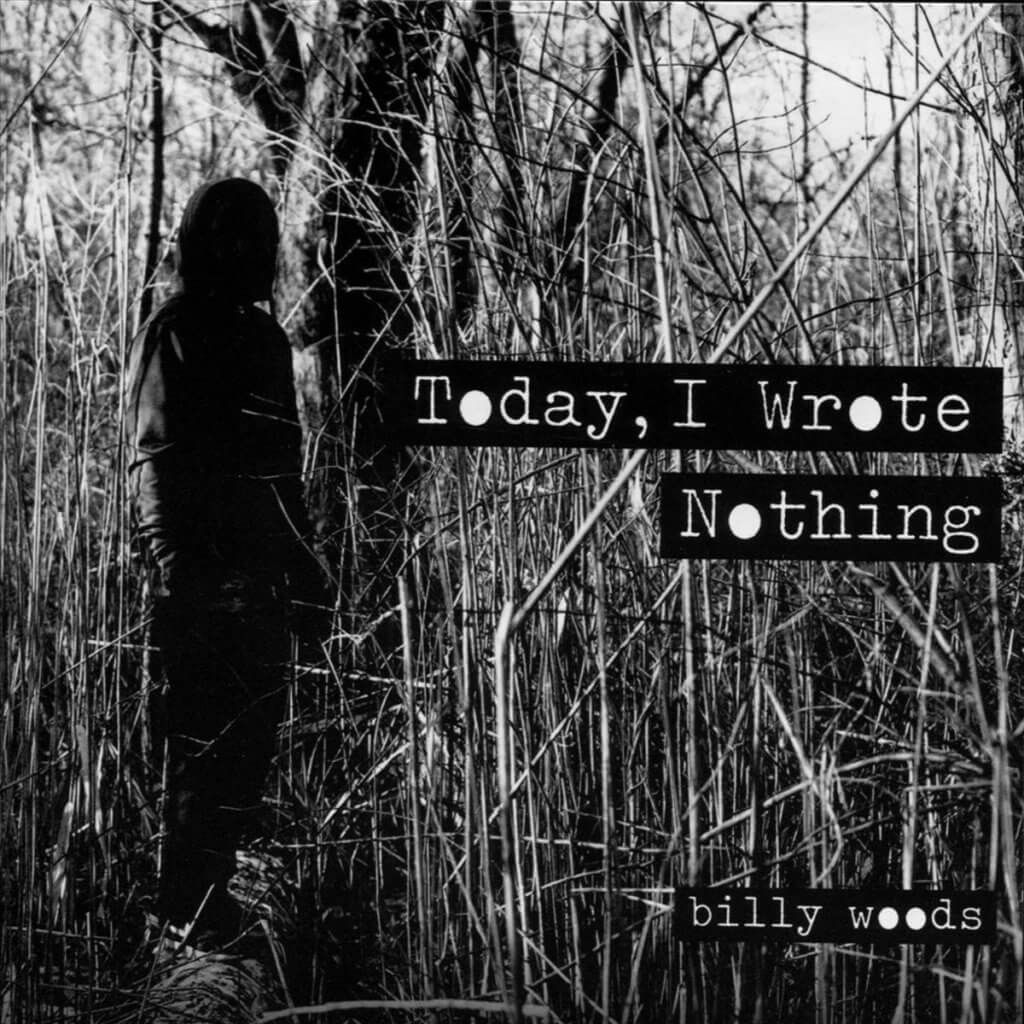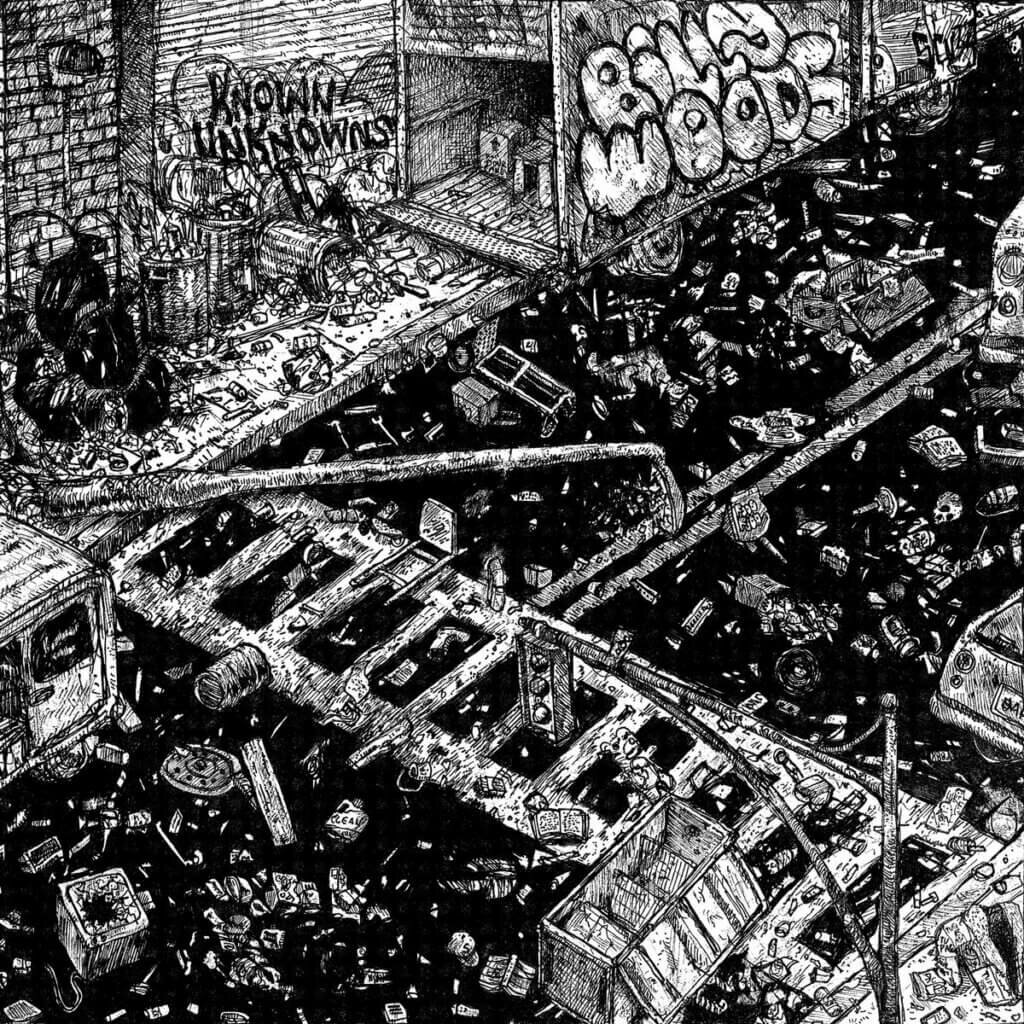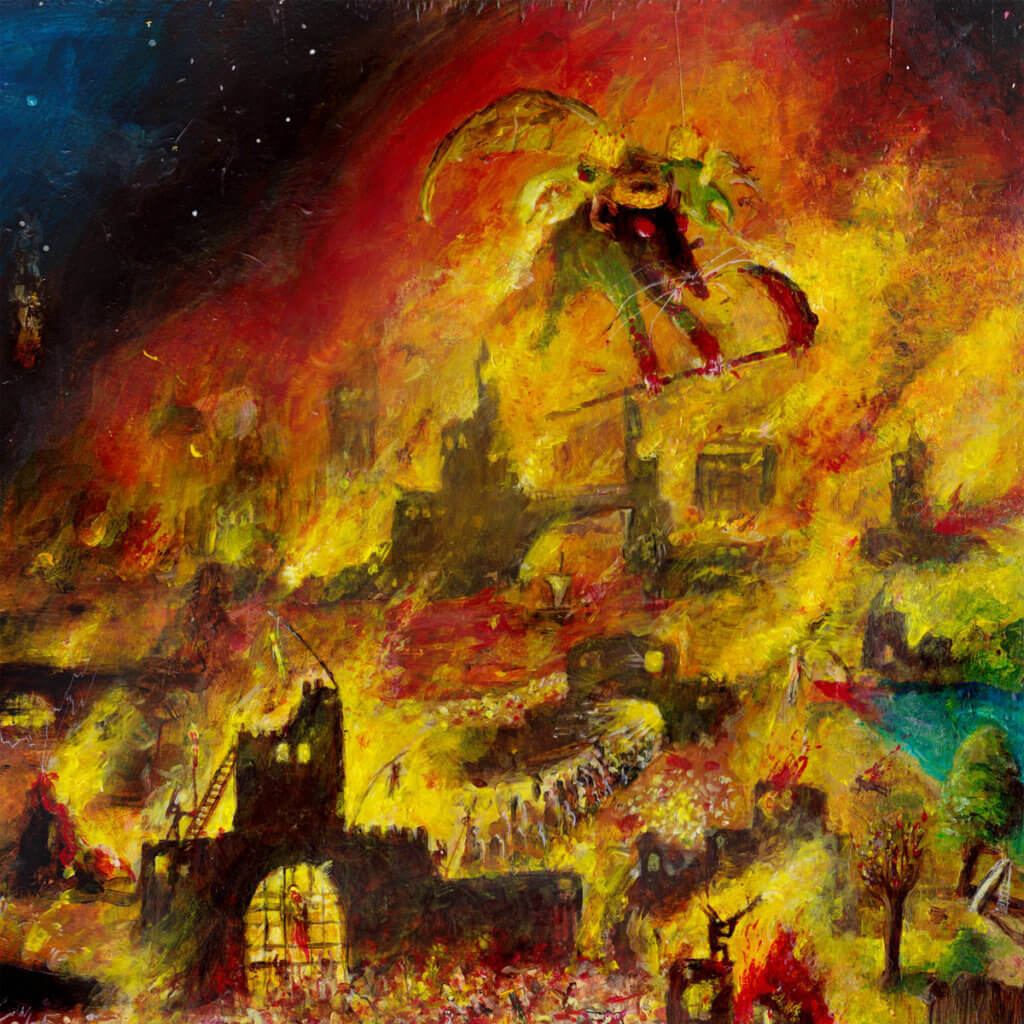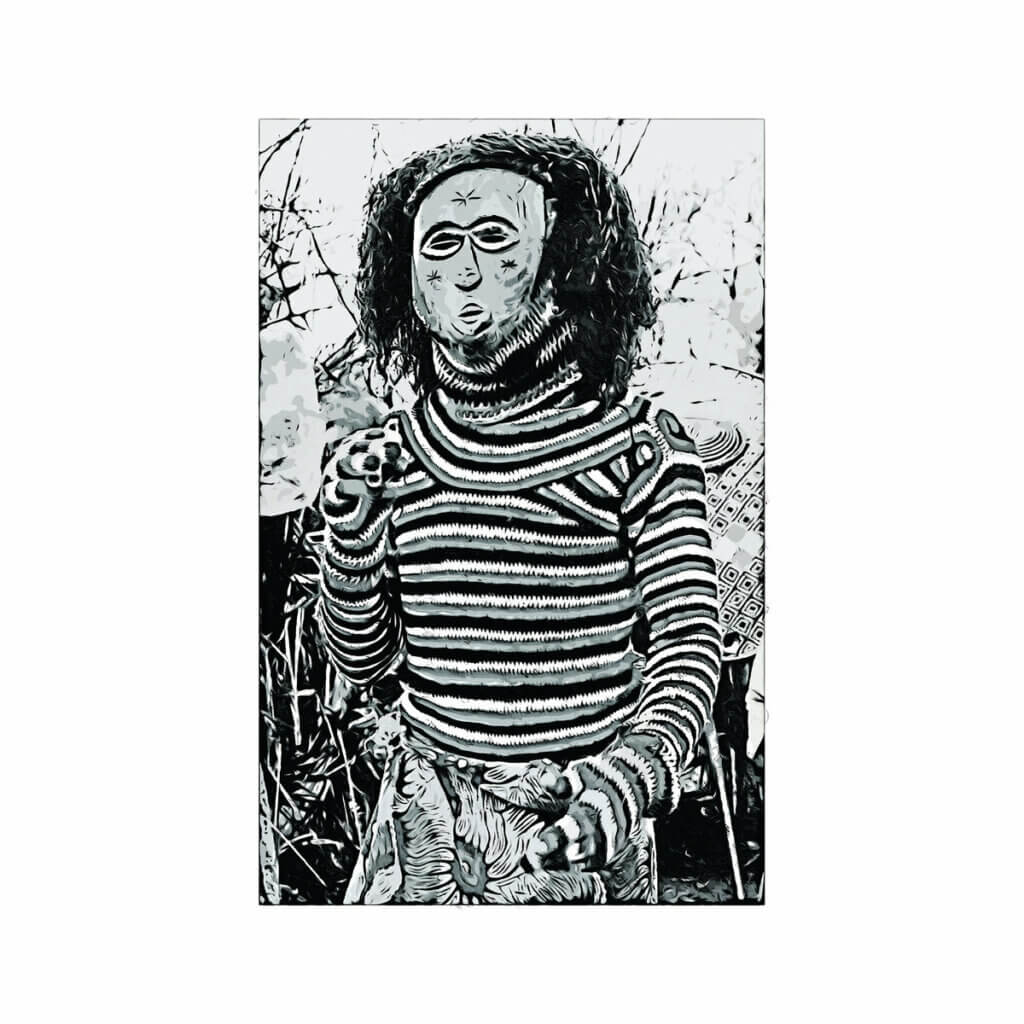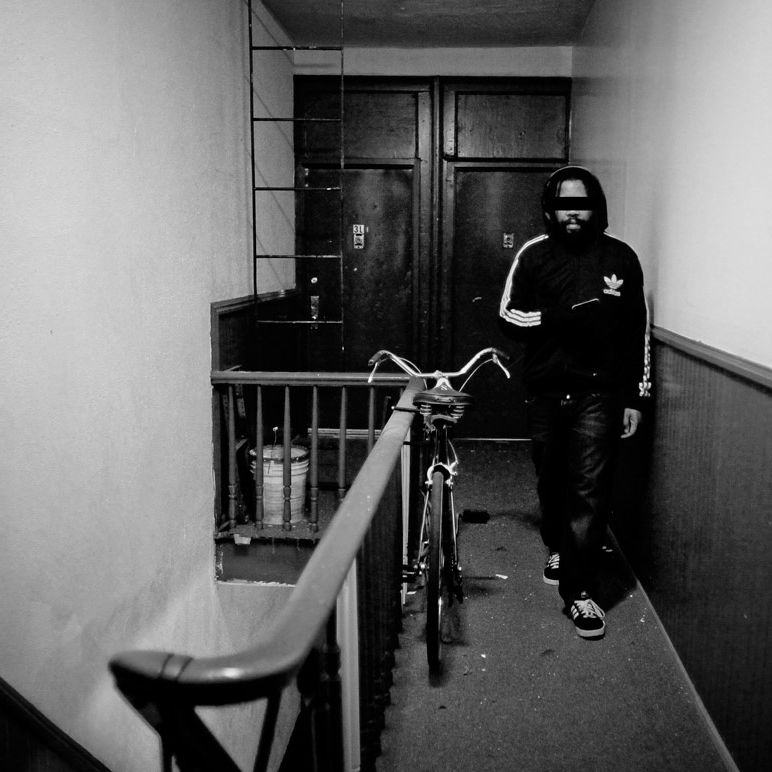
The elusive billy woods is one of our favorite Hip Hop artists of the 2010s and beyond. billy woods is a rapper who defies easy categorization; he claims Washington D.C. as his hometown but has spent much of his life in New York City. He was born in the U.S. but spent much of his childhood in Africa and the West Indies, the second child of a Jamaican intellectual and a would-be Marxist revolutionary. On the mic, woods is no less of a conundrum, possessed of versatile flows and an ability to not only tackle topics other artists wouldn’t dream of, but also to bring unique perspectives to the familiar ones.
Long before building the modest-but-loyal cult following that came with the Flight Brothers, woods made a name for himself with a left-field debut album and one intriguing ensemble project after another. A longtime associate of Cannibal Ox, he came into the game on the back of a collaborative record with Vordul called Camouflage (2003), a low-budget, ultra-indie release that set the table for woods’ particular brand of blunted dissonance and lyrical tight roping. Camouflage was quickly followed by his first, true solo album, The Chalice, in 2004. It would also be his last solo work for a long time as woods threw himself into a series of group projects, first as a part of East Coast rap “supergroup” The Reavers, with Akir, Karniege, Vordul Mega, Hasan Salaam, and a host of other on-the-cusp MC’s in 2005. Then came the Super Chron Flight Brothers; between 2006 and 2010, woods and Priviledge released a trilogy of critically-acclaimed concept albums – Emergency Powers: The World Tour (2007), Indonesia (2009), and Cape Verde (2010), wrapping cogent sociopolitical commentary in a potent mix of racial humor, weed rap, and pop-culture references.
After the now-defunct Super Chron Flight Brothers, woods struck out on his own with 2012’s audacious mission statement, History Will Absolve Me. An album two years in the making, History…was a molotov cocktail of sarcastic fury, with production to match its uncompromising vision.
History Will Absolve Me was the first album in an incredible run of consistently excellent albums. History Will Absolve Me (2012), Dour Candy (2013), Today, I Wrote Nothing (2015), Known Unknowns (2017), Hiding Places (2019) (with Kenny Segal) and Terror Management (2019) are all top quality Hip Hop albums. Together with the projects he dropped as Armand Hammer (a collaboration with rapper/producer Elucid) – Race Music (2013), Rome (2017), and Paraffin (2018), that’s nine straight top-tier projects released in the 2010s.
billy woods continued his run of excellence in the 2020s, with BRASS (2020), a collaboration with experimental musician and poet Moor Mother, and two strong Armand Hammer albums – Shrines (2020) and Haram (2021).
Below you’ll find the projects billy woods released after 2010, listed chronically – plus a 207 song Spotify playlist with ALL billy woods post-2010 albums right here.
History Will Absolve Me (2012)
History Will Absolve Me is billy woods’ 3rd full-length solo album, and his best. The cover of this album has a close-up picture of controversial former Zimbabwe president Robert Mugabe paired with one of Cuba’s Fidel Castro’s most infamous quotes – an album cover that clearly indicates this is not a bubblegum rap album. Musically this album could have been part of the Def Jux realm with its dusty and experimental-sounding musical backdrops. The beats set the perfect stage for woods’ staccato flow and thought-provoking lyrics; with his views on subjects as politics, race, sex, and class. History Will Absolve Me is a challenging and intense listening experience, but ultimately an extremely rewarding one. History Will Absolve Me is one of the best albums in 2012, sadly ignored upon its release. It is standing the test of time though, so it is never too late to check it out if you slept on it up to now.
#3 album of 2012; #20 of the 2010s.
Full album:
Dour Candy (2013)
Not as heavy and impactful as History Will Absolve Me (2012), Dour Candy is still better than most other Hip Hop released in the first half of the 2010s. In comparison to billy woods’ other releases in the 2010s, Dour Candy falls a bit short – mainly because the smooth instrumentals are just there, less effective in enhancing billy woods’ complex imagery compared to the outstanding soundscapes on History Will Absolve Me, Known Unknows (2017) and Hiding Places (2019). Make no mistake though: Blockhead’s production is more than solid, and as always Dour Candy first and foremost is all about billy woods’ perspective and personality, but the sum of the parts here is not as big as on some of billy woods’ other releases this decade. Dour Candy is solid billy woods nevertheless and even a mediocre billy woods release is better than most rapper’s best.
#16 album of 2013; #142 of the 2010s.
Full album:
Race Music (2013) (with ELUCID as Armand Hammer)
Race Music is one of the three excellent albums released by Armand Hammer in the 2010s. It requires multiple listens to unpack all subtleties and to begin to see through the intricacies of the project, as is always the case with releases from billy woods and ELUCID, be it solo or as Armand Hammer. Race Music is another signature dense experience, filled with the duo’s vivid and disjointed imagery. The soundscapes are crafted to fit the lyrics – heavy, slow beats laced with off-kilter electronics and synths. Not for the uninitiated, but for those who are into this particular brand of Hip Hop, Race Music is pure gold.
#9 album of 2013; #101 of the 2010s.
Full album:
Today, I Wrote Nothing (2015)
Where most of billy woods’ other albums are lengthy explorations of consistent themes, Today I Wrote Nothing is comprised of short stories and vignettes that thematically leap back and forth, on songs that are mostly short: 2 minutes on average. Taking influences from sources like HBO’s “The Wire” and Cormac McCarthy’s “Blood Meridian”, woods lets go his typical brand of stream-of-consciousness type lyrics. The brevity of the songs and the broadness of themes, and woods’ fleeting but vivid imagery can make this album feel incohesive, but the common thread binding the 24 tracks on Today I Wrote Nothing is woods’ conversational rapping style and scalding wit. Like all other billy woods projects, Today I Wrote Nothing has an incredible amount of depth and requires multiple listens to unravel just what exactly woods is meaning to say. That said, the experience is ultimately rewarding – and even if this is not even the best album billy woods has released in the 2010s, it is an essential part of his catalog and it helps cements his status as one of the decades MVPs.
#15 album of 2015; #133 of the 2010s.
Full album:
Known Unknowns (2017)
Known Unknowns is one of our favorite albums of 2017 and one of the best Hip Hop albums of the 2010s, but it was totally overlooked by most Hip Hop fans and noticed only by those heads who dig deep or those who have always been following billy woods.
Substance over fluff, creativity over genericness, intelligence over materialism – that’s what characterizes billy woods, and knowing that dumb sh** dominates the mainstream it means little chance on mainstream exposure for woods’ music. Known Unknowns is one of billy woods’ most easy-to-get-into albums, mainly because of Blockhead’s consistently dope and reasonably accessible production (with also a couple of beats crafted by Aesop Rock).
#2 album of 2017; #25 of the 2010s.
Full album:
Rome (2017) (with ELUCID as Armand Hammer)
Rome is the second album by Armand Hammer, those familiar with the respective artist’s other work, you know what to expect: raw, cryptic lyrics and dark, grimy, off-kilter beats. Despite work on the boards from a host of different producers – Messiah Musik, August Fanon, Fresh Kills, High Priest, Kenny Segal, and JPEGMafia – Rome sounds entirely cohesive, also thanks to the as per usual intriguing lyrical performances of ELUCID and billy woods. Cerebal, stream-of-consciousness rhymes and stinging observations (“skimmed through your music, found no reason not to approve it/it was all relatively toothless, you’re just a guy”) – this is one of those albums with endless replay value, on which you can discover something new with each spin. Rome may be a dark and challenging listen, but it’s a hypnotically beautiful experience if you allow yourself to be grabbed by it.
#7 album of 2017; #59 of the 2010s.
Full album:
Paraffin (2018) (with ELUCID as Armand Hammer)
Paraffin is not an easy album to get into, it’s sonically and lyrically as dense as you might expect from ELUCID and billy woods. The way especially billy woods paints lyrical pictures is neither straightforward nor easy to decipher. But it doesn’t have to be easy – this is Hip Hop for thinking people. Both men’s cerebral lyrics are dark and heavy, but humorous here and there at the same time. Paraffin is amazingly produced and lyrically incredibly layered – Armand Hammer has something substantial to say for those motivated and intellectually equipped to really listen. Not for everybody, but for those who appreciate abstract, experimental Hip Hop Paraffin is a must-have.
Full album: #5 album of 2018; #44 of the 2010s.
Hiding Places (2019) (with Kenny Segal)
Hiding Places has billy woods collaborating with producer L.A.-based producer Kenny Segal – a partnership that results in another typical billy woods release. Deep, dark, and weighty lyrics, sometimes bordering on surrealism but always intelligent and with substance – this is Hip Hop for grown-ups at its finest.
#5 album of 2019; #40 of the 2010s.
Full album:
Terror Management (2019)
billy woods’ second release of 2019 is almost (if not quite) as good as Hiding Places, his collaboration with Kenny Segal is. Read the description from billy woods’ own website:
On his new album, Terror Management, billy woods weaves past, present and future into a dark tableau as hilarious as it is macabre. This is a place where skeletons spill from closets, lead pours from faucets and the punchline is the whole joke. This is the sound of the police not coming, of garbage trucks in reverse, of glaciers shearing off into a black ocean. But these are also tales of perseverance, compassion, and love, however quixotic. Of snatching one’s humanity from the fires that rage all about us.
Terror Management features production from Preservation, Blockhead, Willie Green, Messiah Muzik, Small Pro, ELUCID, Child Actor, Steel Tipped Dove, Uncommon Nasa, Jeff Markey, and Shape. Together they create a backdrop of seamless fragmentation perfectly suited to these times—this era of cognitive dissonance. Mach Hommy, Fielded, Pink Siifu, Akai Solo, Lauren Kelly Benson (fka L’Wren) and The Funs all make guest appearances.
If you’re familiar with and appreciative of billy woods’ earlier projects you will enjoy Terror Management without a doubt. If you’re a billy woods noob Terror Management is not a bad entry point (even if it’s not his best album) – the album is characteristic of woods’ left-field sound and style, but it is a bit more accessible than some of his other works are.
Full album:
Shrines (2020) (with ELUCID as Armand Hammer)
Masterfully produced left-field instrumentals serve as claustrophobic backdrops for a barrage of dense and dizzying lyrics. By now we know what to expect from Armand Hammer. There’s never anything straightforward in the messages ELUCID and billy woods come with, and on Shrines, their lyrics are as fogged in metaphors and hidden meanings as always – it’s going to take a while to dissect these bars.
Shrines has vocal contributions from Quelle Chris, Earl Sweatshirt, Akai Solo, Curly Castro, Pink Siifu, and R.A.P. Ferreira – among others. A stacked features list, but a carefully curated one – none of these artists feel out of place here. They were invited because they are all perfectly in tune with the Armand Hammer aesthetic.
Shrines is singularly attuned to the grim political and societal realities of 2020. The cover art of the album (which is a real news photo of the subduing of a 425-pound Siberian-Bengal tiger reared and living in a Harlem apartment) is like a micro snapshot of the crazy world we live in, and the image reflects the album’s content. This is not a casual listen by any means, but an album that demands – and rewards – close attention and engagement. Shrines is another Armand Hammer master class in left-field Hip Hop, and a superlative continuation of their hot streak.
Full album:
BRASS (2020) (with Moor Mother)
“BRASS is a collaborative album from experimental musician and poet Moor Mother and the rapper billy woods (½ of Armand Hammer). After working together on Armand Hammer’s critically acclaimed 2020 LP Shrines, Moor Mother and woods released the song “Furies” for the Adult Swim single series in July. A whirl of interweaving allegories spun over producer Willie Green’s hypnotic flip of a Sons of Kmet sample, “Furies” was the burning arrow that both artists followed, the first crack of thunder in a blackening sky.
BRASS sees both artists joined by an eclectic array of friends, family, and legends- in some cases all three. John Forte, ELUCID, Amirtha Kidambi, Franklin James Fisher (Algiers), Mach Hommy, Imani Robinson, Wolf Weston (Saint Mela), Navy Blue, and Fielded all lend their voices to the project. Production by The Alchemist, Preservation, Moor Mother, Olof Melander, Child Actor, Navy Blue, Messiah Muzik, Steel Tipped Dove, and Willie Green.
BRASS is a moment where two great artists in their own right tap into a new frequency together. Even for those familiar with both, it’s an unexpected sound that, once heard, could never have been otherwise. It is both ethereal and utilitarian, timeless and timeworn. A cast-iron pot propped over a fire in the dark. A tropical beach shimmering with broken glass.”
This Bandcamp blurb tells the story of this project. BRASS is one of the most unique and intriguing listens of the year, a great feat in a year with A LOT of excellent ‘left-field’ Hip Hop albums. Moor Mother and billy woods have great chemistry together, and they recruited exactly the right artists for the guest spots on this project.
For people who like their Hip Hop experimental, dense, and challenging, the genre boundaries pushing BRASS will be a quick favorite. For others, BRASS may be somewhat of a slow-burner, a project that will reward multiple listenings. BRASS is a great album.
Full album:
Haram (2021) (with ELUCID as Armand Hammer)
For Haram Armand Hammer joined forces with producer extraordinaire The Alchemist. This is what the blurb says about the album:
“Haram is a mercurial collaboration between incendiary rap duo Armand Hammer, and living legend The Alchemist. For the first time ELUCID and billy woods have crafted an album with a single producer and the result is extraordinary. With their unmatched penchant for stirring imagery and incisive storytelling, the two rappers dive into an ocean of Alchemist’s creation: warmly inviting on the surface, black and bone-crushingly cold at depth. Haram is a collection of the profane and the pure; a reminder that that which is forbidden is also sacrosanct.
The artists are joined by their friends and fellow travelers on this journey. KAYANA’s golden voice ups the wattage on “Black Sunlight,” while Fielded’s sultry alto gets chopped and screwed on “Aubergine”. Earl Sweatshirt makes a sun-soaked appearance, while Curly Castro and Amani mix like ice and salt on Brooklyn sidewalks, and Quelle Chris, as always, finds a pocket all his own. Still, there is a natural rapport that belies the New York-to-Los Angeles-and-back nature of the project, allowing Haram to be more than the sum of its parts, however impressive those parts may be. This isn’t just the genre’s most insistent contemporary voices paired with arguably its best producer. This is when you buy a beautiful house only to discover, hidden behind a heavy bookcase, a stairway twisting up and away into the darkness.”
Now, the question is: is Haram on par with billy woods’ and Armand Hammer’s earlier releases? The answer is: yes, Haram 100% met expectations – it may even one-up the stellar Paraffin as Armand Hammer’s best work yet. On Haram, the Islamic term meaning “forbidden”, billy woods and ELUCID explore all kinds of taboos – in their own cryptic ways. As always, it takes some effort on the part of the listener to penetrate the dense poetics penned by billy woods and ELUCID – there’s is so much to unpack and to think about here, it gives Haram endless replay value.
The Alchemist’s work on the boards arguably makes Haram a little more accessible than the four previous Armand Hammer albums are, but his atmospheric instrumentals are left-field enough to suit billy woods and ELUCID avant-garde rhyming. This is The Alchemist’s finest music in a while, even better than his much-lauded work on Freddie Gibb’s Alfredo of last year – in fact, we will go as far as to say The Alchemist crafted a masterpiece here.
Stand-outs include “Falling Out The Sky”, with some incredible lyrical imagery also from guest rapper Earl Sweatshirt, “Wishing Bad”, “Chicharonnes”, with a bone-chilling instrumental over which billy woods and Quelle Chris tackle police violence and BLM, likening the whole culture to pigs on a spit roast, and “Stonefruit”, with a jaw-dropping last verse from billy woods to close the album out on a high note. Besides these 4 stand-outs, there are no weak tracks on Haram – everything on the album is well-thought-out and perfectly executed – even the gruesome album cover which serves to enhance the mood of the music, in an in-your-face kind of way, with no hint of artificial coolness. Haram is a confirmation of Armand Hammer’s status as one of the most intriguing and consistent duos in contemporary Hip Hop.
Full album:
Aethiopes (2022)
Aethiopes is up there with billy woods’ best albums, on par with History Will Absolve Me, and arguably even better than Known Unknowns, Hiding Places, and Haram – which all were among the best 5 albums of the years in which they were released. Aethiopes is fully produced by Preservation, who delivered a suite of tracks on Terror Management and the two collaborated again on Preservation’s 2020’s LP Eastern Medicine, Western Illness.
Preservation’s dense and eerie production on Aethiopes is phenomenal, and billy woods’ pen game feels like it’s hit another peak. As always, it will take multiple listen to digest and be able to fathom his deep semi-abstract bars – but by now it’s undeniable woods is one of Hip Hop’s greatest poets, along with Brownville’s Ka, to name one of the few who can play in billy woods’ league. Elucid, Boldy James, Quelle Chris, Denmark Vessey, Breeze Brewin, and El-P (among others) make appearances to add some extra flavor, but this is very much billy woods’ own show. He’s as good here as he ever was, and his content is amplified extra by Preservation’s unique and flawless instrumentals. To top it off, sequencing and transitioning on Aethiopes is perfectly done too. Thirteen tracks, and not a weak one among them.
Also read: The Best Hip Hop Albums Of 2022
Full album:
Church (2022)
billy woods never misses. He truly is a generational lyricist, one of the best rappers active today (and not just in the experimental/abstract subgenre). His writing still seems to get better somehow, and he has really mastered his delivery – his spoken-word style is straightforward but totally commanding at the same time. Not even half a year after the outstanding Aethiopes, billy woods comes with a second project that deserves to be counted among the year’s best. Church is different from Aethiopes but just as good. Whereas Aethiopes is heavier on the experimental side and arguably less accessible, Church – while still firmly left-field – is a more straightforward beats and bars affair, this time with production from Messiah Musik whose instrumentals are more in line with the sounds of Blockhead and Kenny Segal on earlier billy woods projects.
Church is a compelling piece of music, a near flawless front-to-end listen. “Fever Grass”, “Classical Music” (with AKAI SOLO and FIELDED), “Cossack Wedding”, “Pollo Rico”, and “All Jokes Aside” are standouts – but as per usual on a billy woods project, there are no real weak spots to be found on Church. Production is dark and sometimes chaotic, but accessible and relaxing at the same time, and billy woods consistently kills it with his bars and flows. At this point there is no getting around it: billy woods is untouchable, and he is definitely stealing the show in 2022.
Also read: The Best Hip Hop Albums Of 2022
Full album:
